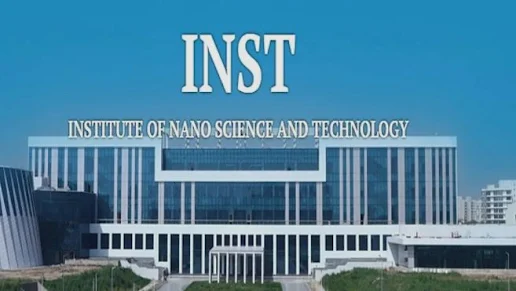INST PhD Admission 2025, Nano Science PhD 2025, INST Mohali PhD
Synopsis: The Institute of Nano Science and Technology
(INST), Mohali, is accepting applications for its PhD program in Nano Science
for the August 2025 session. Research opportunities are available in three
specialized units, with degrees awarded by IISER Mohali. Applications are open
to qualified candidates in science and engineering backgrounds who have cleared
national-level eligibility tests. The last date for submitting applications is
June 10, 2025.
Key Highlights:
·
Program:
PhD in Nano Science – August 2025 session
·
Institutes
involved: INST Mohali & IISER Mohali
· Fields
accepted: Physical, Chemical, Biological Sciences, Pharma,
Agri-Sciences, and Allied Fields
·
Units:
Energy & Environment, Quantum Materials & Devices, Chemical Biology
·
Eligibility:
MSc/MTech/MPharm with national-level exam clearance
·
Deadline:
June 10, 2025
·
Official
website: inst.ac.in
What Makes INST Mohali’s PhD Program a Top Choice for Nano Science
Researchers?
The Institute of Nano Science and Technology
(INST), Mohali, has announced the call for applications for its PhD program for
the August 2025 session. This autonomous institute, supported by the Department
of Science and Technology (DST), Government of India, provides cutting-edge
research opportunities in Nano Science and related fields.
Research
Areas & Affiliation:
Selected candidates will undertake research in one of the following units:
·
Energy and Environment Unit
·
Quantum Materials and Devices Unit
·
Chemical Biology Unit
Successful candidates will be enrolled in the
PhD program at the Indian Institute of Science Education and Research (IISER),
Mohali, and the degree will be awarded by IISER Mohali.
Eligibility Criteria:
·
Applicants must hold a Master’s degree (MSc,
MTech, or MPharm) in Basic Sciences, Applied Sciences, Engineering, or a
related field.
·
Final-year students are also eligible, provided
they complete their degree before admission.
·
Must have qualified a national-level exam such
as CSIR/UGC-NET, ICMR-JRF, DBT-JRF, or possess a funded research project as per
INST norms.
·
DST-INSPIRE Fellows are also eligible (selection
subject to the award of fellowship).
·
Age limit as per CSIR-UGC and DST guidelines.
Application Process:
·
Application form and full notification available
at: inst.ac.in/careers
·
The synopsis must be submitted online via the
link in the admission notification.
·
Application fee: Rs.590 (295 for SC/PWD
candidates), payable online.
·
Online transaction proof must be attached to the
application.
A hard copy of the completed application form,
along with a photograph and necessary supporting documents (proof of age,
education, experience, reservation, etc.), must be sent to:
The
Director,
Institute of Nano Science and Technology,
Knowledge City, Sector 81,
Mohali, Punjab - 140306
The deadline for receipt of the hard copy is June 10, 2025, by registered/speed post,
courier, or in person.
Candidates applying to multiple research units
must submit separate applications for each, though only a single application
fee is required. A copy of the payment proof should be included with each
application.
For queries, contact: apply@inst.ac.in






